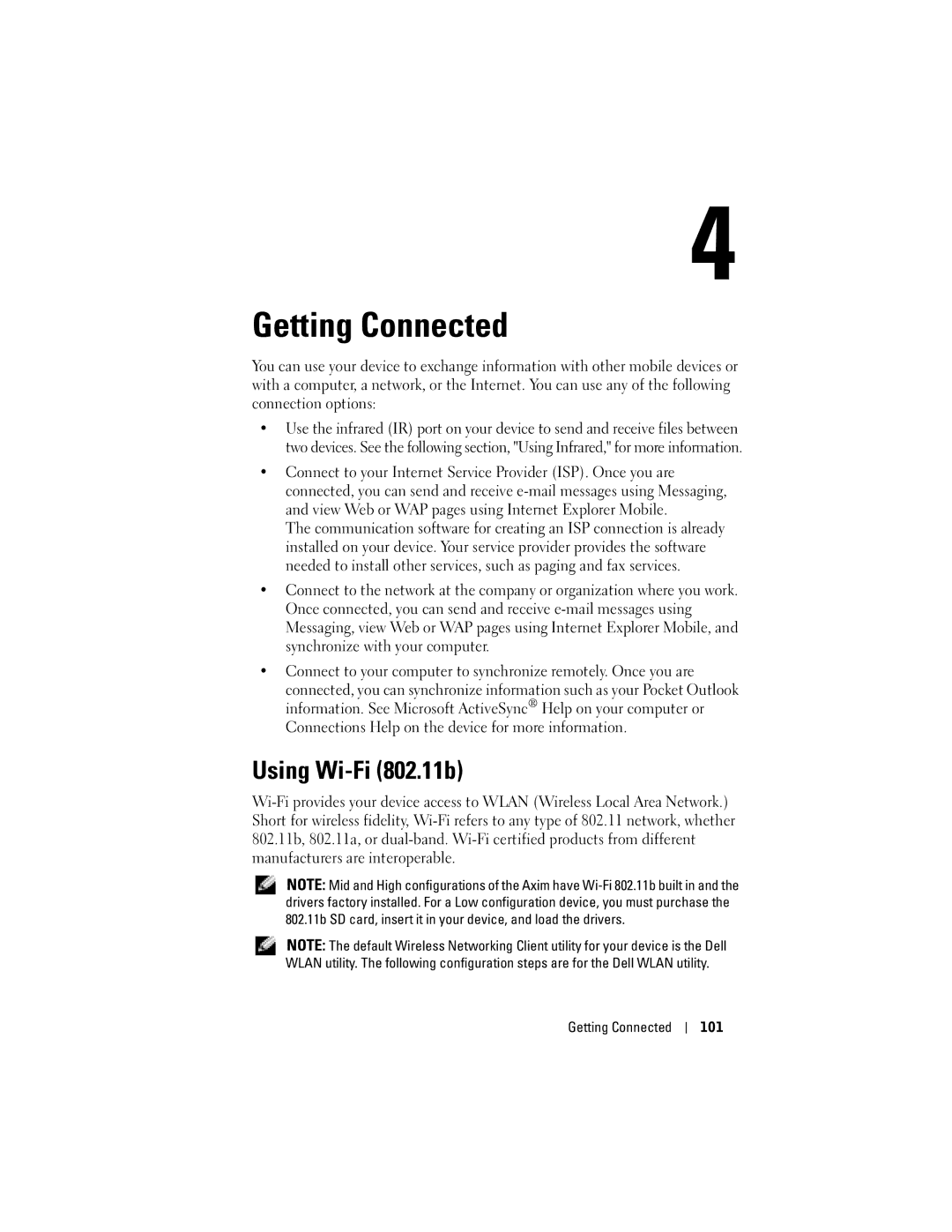
Getting Connected
You can use your device to exchange information with other mobile devices or with a computer, a network, or the Internet. You can use any of the following connection options:
•Use the infrared (IR) port on your device to send and receive files between two devices. See the following section, "Using Infrared," for more information.
•Connect to your Internet Service Provider (ISP). Once you are connected, you can send and receive
The communication software for creating an ISP connection is already installed on your device. Your service provider provides the software needed to install other services, such as paging and fax services.
•Connect to the network at the company or organization where you work. Once connected, you can send and receive
•Connect to your computer to synchronize remotely. Once you are
connected, you can synchronize information such as your Pocket Outlook information. See Microsoft ActiveSync® Help on your computer or Connections Help on the device for more information.
Using Wi-Fi (802.11b)
NOTE: Mid and High configurations of the Axim have
NOTE: The default Wireless Networking Client utility for your device is the Dell WLAN utility. The following configuration steps are for the Dell WLAN utility.
Getting Connected
101
